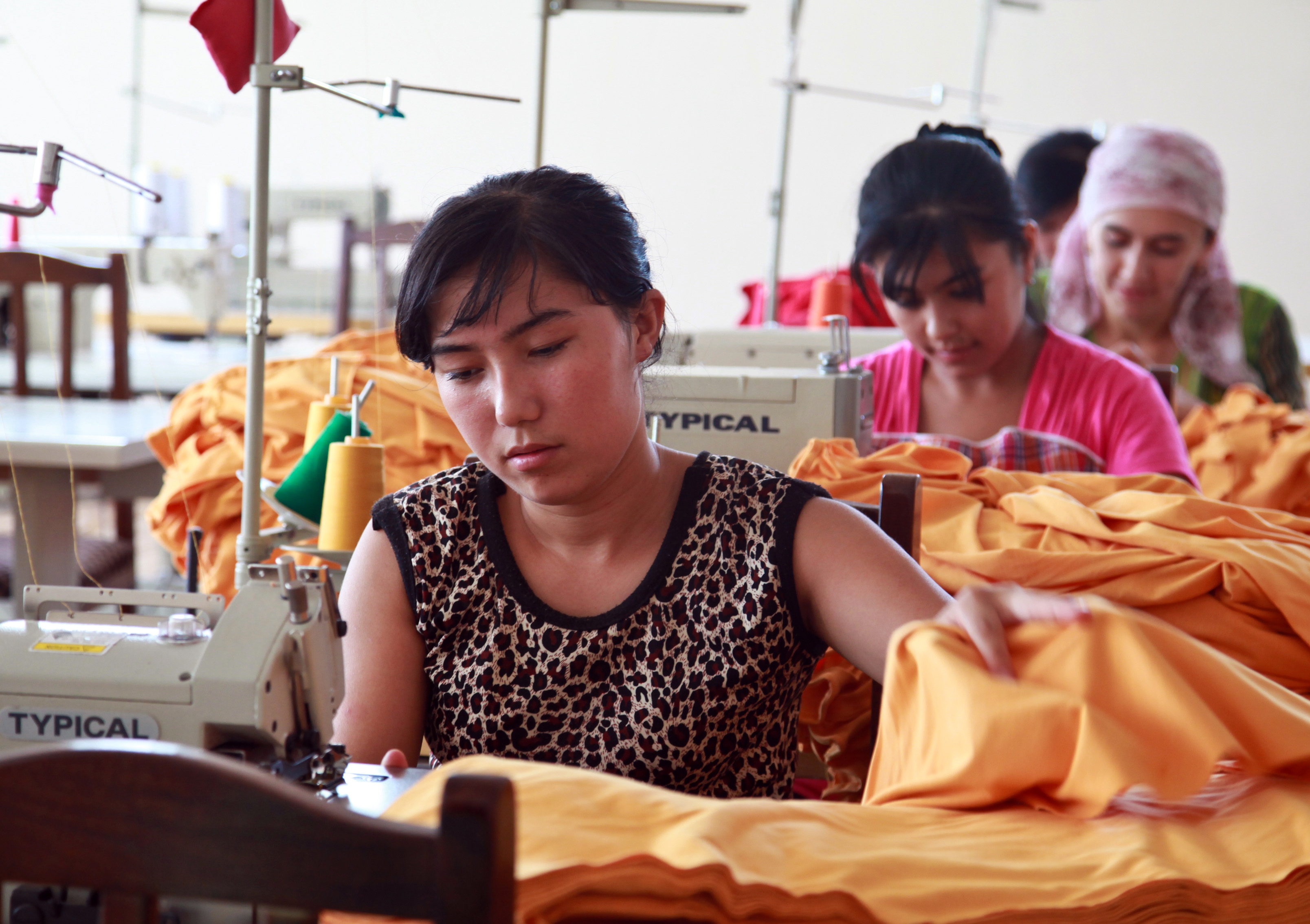Core area “Sustainable economic development, training and employment” Reforming vocational training, creating jobs
Textile workshop in Uzbekistan
One focus of Germany’s cooperation with Uzbekistan is on strengthening local and regional economic development, especially in the areas of agriculture, tourism and handicrafts. One example is the development of a tourism strategy for northern Uzbekistan. In the field of agriculture, the BMZ is supporting the value chains for stone fruit, grapes, fish, dairy products and meat. This also includes the introduction of international standards, for instance for organic certification.
KfW Development Bank is creating better access to medium- and long-term loans for micro, small and medium-sized businesses, enabling them to make investments and create jobs.
Another priority is vocational training, which is to become more practice-oriented and aligned more with labour market needs. Building on the model of the dual vocational training system in Germany, and working closely with the private sector, eight modernised vocational training programmes will be offered initially, six for the textile industry and two for industrial technical professions. It is also planned to develop careers advice services in order to fight youth employment.
Another project is aimed at advancing the “green” transformation of the economy, for instance by introducing energy- and resource-efficient production methods.
As at: 27/02/2023
